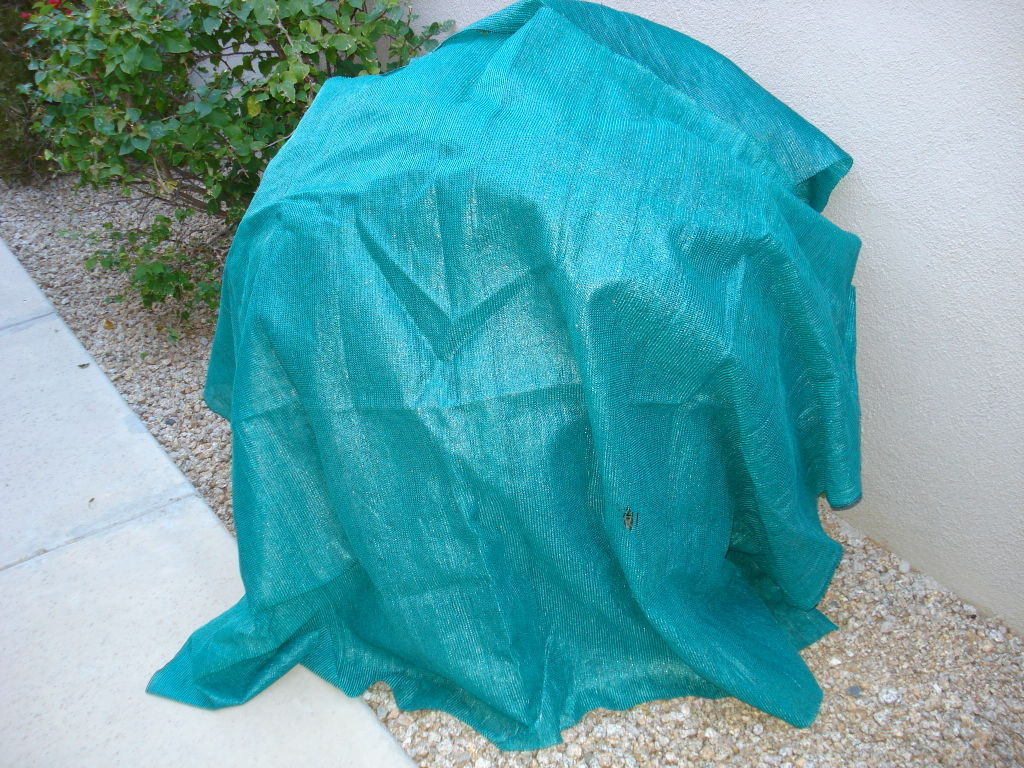Q: When the temperature drops in winter, can I cover my delicate garden plants with a painter’s drop cloth to protect them from the frost?
A: Yes, it’s possible to use cloth and fabric of various kinds to cover plants in frost conditions. Be sure to drape the material all the way down to the soil to get maximum protection against frost. However, it will still provide some protection if you can only lay the cloth on the top branches of a bush or plant.
Although sheets and similar fabric will work, never use plastic, which can actually damage your plants by making them colder.
The best material is frost cloth purchased from a nursery. If necessary, frost cloth can be left on plants for a while without damaging your plants. But when using sheets or other fabrics, it’s best to remove them in the morning and put them back on at sundown.
Q: For the past couple weeks, the water coming out of our kitchen faucet has been steadily decreasing — both hot and cold. I tried cleaning the surface of the end of the faucet spout with vinegar and it doesn’t seem to have helped improve the flow.
A: There could be bits of sand and minerals caught in the aerator at the very end of the faucet, so you need to remove the aerator to clean it out completely. Even before you clean it up, you’ll probably notice that the water runs out very well once you take the aerator off the faucet spout.
It can take a little muscle to get the aerator to unscrew. Also draw a sketch of the order in which parts are taken off or take a quick photo of the parts with your phone. That way you can put everything back the same way.
To clean the aerator, start by turning off the water supply by turning off the valves under the sink. Cover the end of the spout with masking tape to protect the finish, then use pliers to unscrew the aerator from the spout. Take out the screen aerator section and clean it by soaking it in vinegar and then scrubbing with a soft brush.
You can also replace the washer while the faucet is disassembled.
Reassemble the parts in the right order and thread the aerator by hand back on the faucet. Once everything is back in place, tighten with pliers.
Q: I have horses and I don’t want to use oleanders as a privacy screen for my property because the horses might eat the oleanders. So what should I use instead since oleanders can be poisonous?
A: Good, safe choices to plant for screening would include green hop seed bushes, orange bells or yellow bells, sour orange or common myrtle.
Q: We are getting ready to rent out a two-bedroom townhome that has four hard-wired smoke alarms with battery backups. Would it be a good idea to switch to combination smoke alarm and carbon monoxide detector units? And should we use 10-year lithium batteries in the alarms? Will those batteries be as long-lasting as they say or would it be better to stick with replacing regular 9-volts all the time?
A: It would be a great idea to use those combo alarms plus lithium batteries. Since you will have tenants in the townhome, you don’t want the chore of replacing batteries every year. Lithium batteries, by the way, die very slowly. They will give you warnings for weeks before they finally need replacing.





